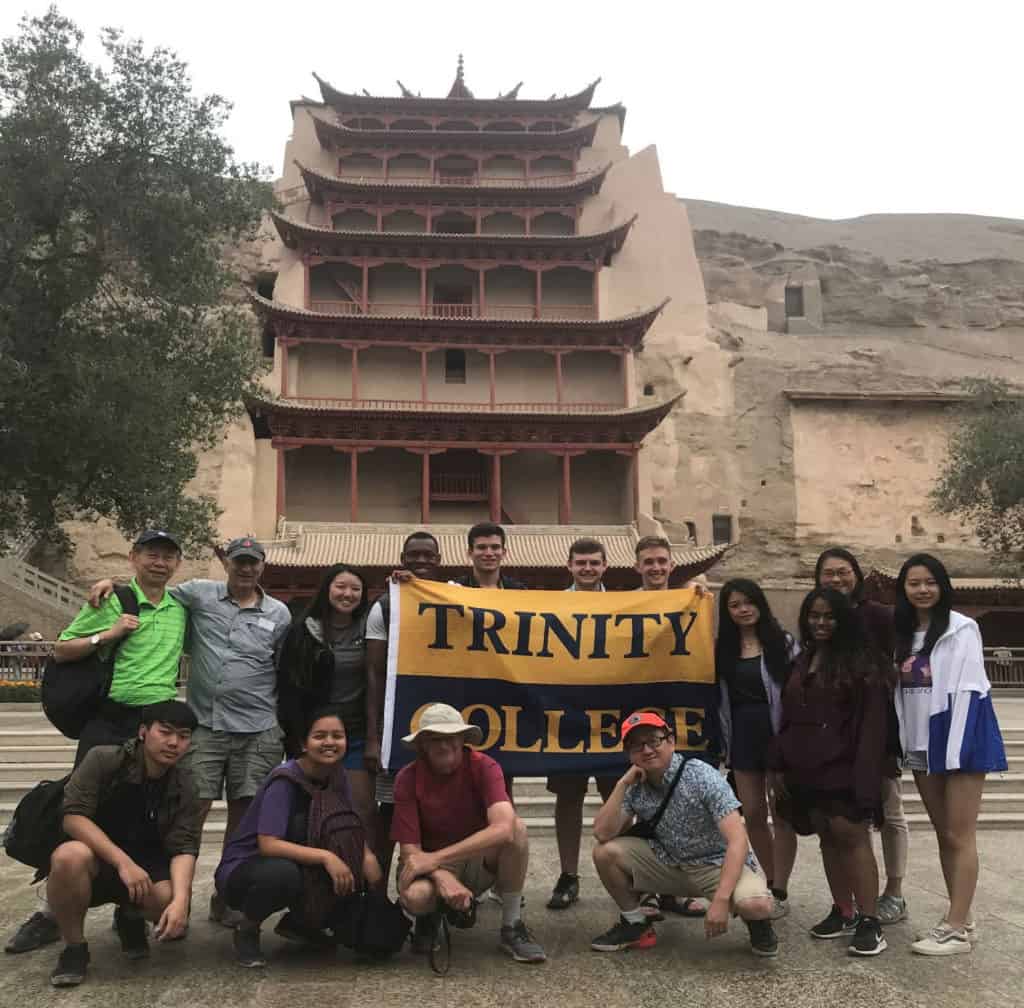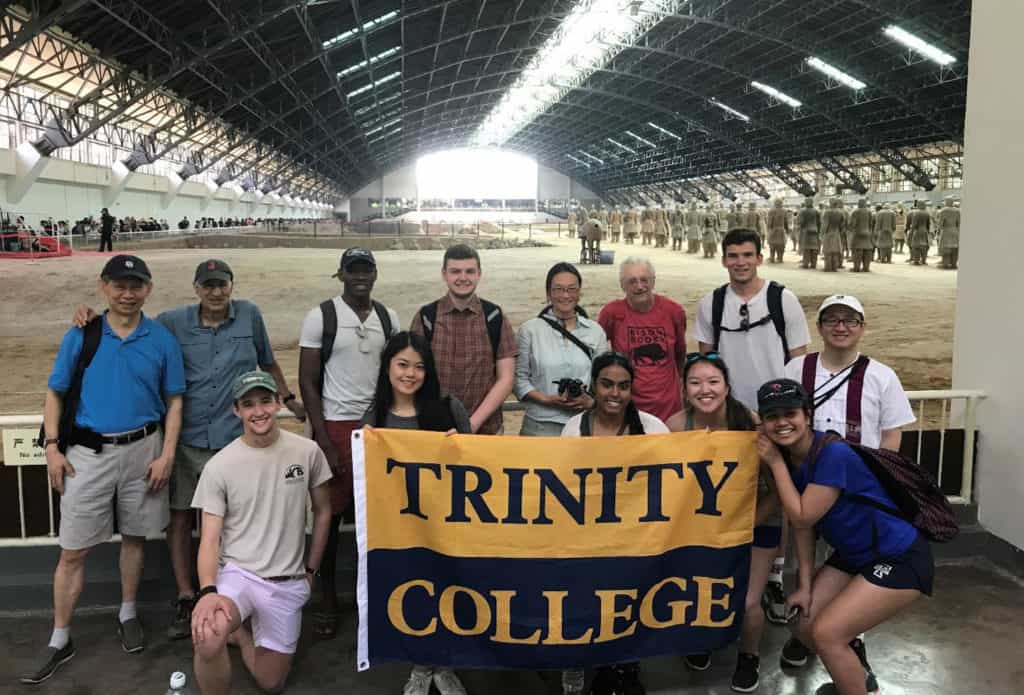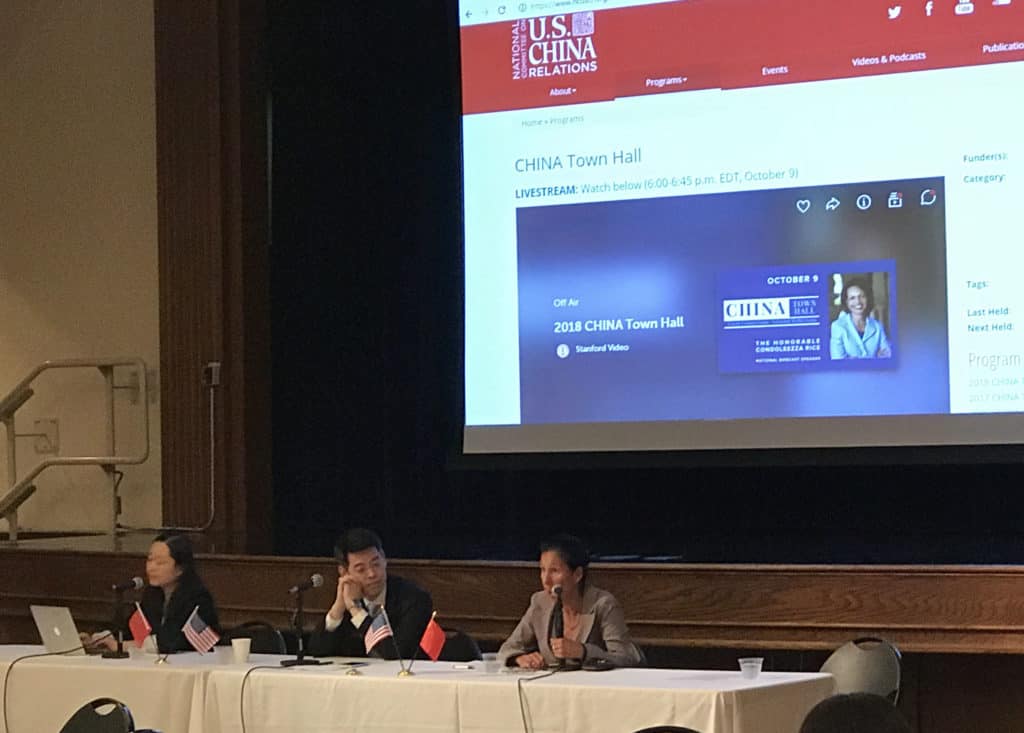There are no limitations to learning at Trinity College, even when the subject being studied is halfway around the world. As one of the largest global influences, China plays a central role on the world stage, said Xiangming Chen, Paul E. Raether Distinguished Professor of Global Urban Studies and Sociology and dean and director of Trinity’s Center for Urban and Global Studies (CUGS). Facilitated by the launch of CUGS in 2007, Trinity began to build off its earlier academic connections with China by creating new and broader curricular initiatives to understand the relationship between the U.S. and China—with their complex trade and cultural ties—as a major component of the college’s broader mission for students and faculty to work together to better understand the global society.

Today, Trinity’s connections to China have grown to include teaching opportunities for visiting scholars from both Trinity and China, a vibrant summer program in China, a large increase in the number of Chinese students attending Trinity, global conferences held on the Hartford campus, and a semester study away program in Shanghai via a partnership with Fudan University, one of China’s top-ranked universities.
Chen, who has spearheaded CUGS since its launch, said the college’s vision was to integrate its urban and community research and engagement programs along with existing and new global programming connections to create collaborations throughout the world.
“The conversations were not China-specific at first,” said Chen, who wanted to emphasize a broader interest. However, because of his strong China studies background, close collaboration with a strong group of China studies scholars and other faculty, and connections with Chinese universities and scholars, creating a multifaceted program that had a strong focus on a country with heavy global impacts was a natural progression.

That led to the development of a summer study-away program that kicked off in 2009, with 21 students traveling to China to study its urban cities. In 2018, the program marked its 10-year anniversary of CUGS-organized traveling investigations throughout Asia, with a focus on Silk Road cities. A partnership between Trinity and Fudan University was formed in 2012, offering students and faculty opportunities to learn and live in one of the premier economic, academic, and social centers of China.
Aiqi Wu ’20, an international studies major from Maryland, said she enjoyed a fulfilling experience through the Trinity in Shanghai study away program. “Studying abroad is a great opportunity to experience a wide array of cultures in a new setting, which is important to my education and interests,” said Wu, who studied at Fudan University for a semester. “The experience of studying in a megacity like Shanghai has allowed me to develop a more open mindset toward learning about others, which I am able further expand at Trinity.”
Yichao Tu, a Thomas Visiting Associate Professor from Fudan University, said opportunities for faculty and students to experience what they are studying is essential. “There are strong interests from both countries to learn more about each other,” she said. “However, nothing pushes the boundaries of education across language and cultural barriers until people live in the other country. You get a much better understanding by learning from the people.”
In her U.S.-China relations class at Trinity, Tu encourages her students to take a deeper historical and political interest through discussions about current events and ongoing issues. “It is important to have discussions because the two countries have a lot of influence—politically, economically, and academically—toward each other,” she said.
In 2007, only three international students from China attended Trinity. Now there are 91 international Chinese students across all disciplines. Representatives of Trinity’s Division of Enrollment and Student Success travel regularly to China, where they meet with prospective students and their families and host receptions for admitted students. On campus in Hartford, the college offers several cultural and networking events specifically designed for Chinese students.
Xiaozhe Zhou ’19, a mathematics major from China, expressed the importance of students learning more about other cultures and getting out of their comfort zones. “As a math major, factors are certain in my field,” Zhou said. “From the 2017 summer program in China and Southeast Asia, where I served as a TA, I realized that the real world is not as certain and I learned how to better communicate with people.”
Associate Professor of History Michael Lestz agreed that there is nothing like learning through experience. “The great idea about our evolving program is that it gives everyone a chance to see parts of China that no one else would experience,” said Lestz, who has also collaborated with CUGS and is an expert in Chinese history. “There was very little interest in China when I first started teaching, and now the interface between the two countries is insurmountable.”

In addition to study away opportunities, CUGS and other organizations sponsors numerous local events throughout the year to encourage further learning, including the October 9 “China Town Hall” meeting, where speakers were invited to discuss the local impacts of global China. Co-sponsored with the World Affairs Council of Connecticut, this year’s panel included Trinity professors Chen and Tu, along with Zhao Yumin, acting consul general of China in New York. Former Secretary of State Condoleezza Rice was the national webcast speaker. Chen said the meeting was well attended and was a great way to connect communities on a global scale.
“None of this would be possible without faculty and student interest,” Chen said. “Trinity’s global connections are really the result of everyone working together. We are very proud of that.”
The China summer study away programs have been organized by the Center for Urban and Global Studies with sponsorships and support by the Henry Luce Foundation, the Thomas China Urban Research and Teaching Endowment, the O’Neill Asia Cum Laude Endowment, the Charlotte Riggs Scholarship Fund, and the Office of Study Away.
